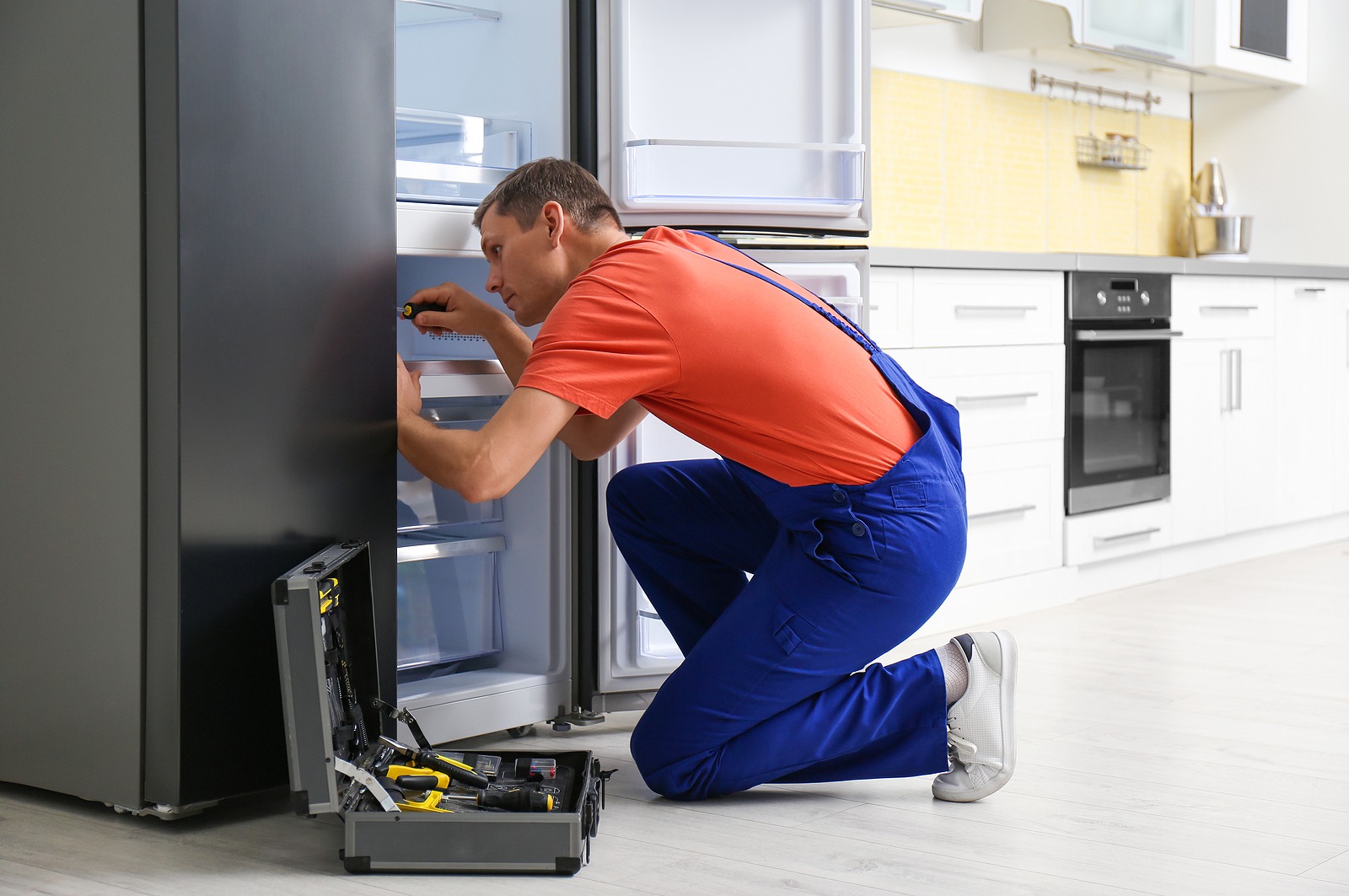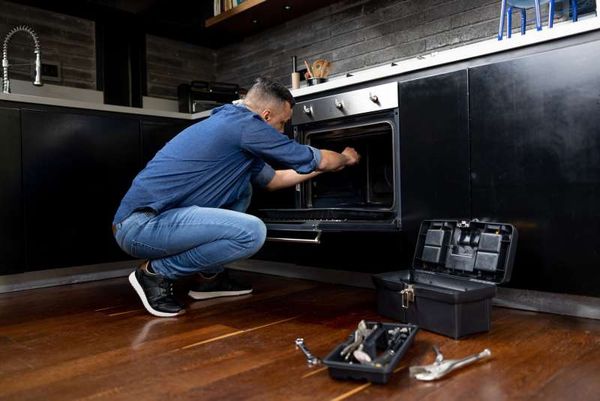The Ultimate Overview to Recognizing Device Repair Service in your home
When your fridge quits cooling or your oven refuses to warm, it can feel frustrating. Comprehending home appliance repair at home can save you money and time. You'll discover to identify signs, use vital devices, and adhere to a methodical troubleshooting procedure. Yet before you start, there are crucial safety preventative measures you require to consider. What are one of the most typical problems, and how can you fix them? Let's check out the essentials.
Typical Appliance Troubles and Their Symptoms
When your home appliances begin acting up, it's necessary to recognize the indications early. Overlooking them can result in bigger problems and expensive repairs. If your fridge isn't cooling down correctly, you might notice warm areas or condensation developing. This can suggest a failing compressor or an obstructed vent.Your dish washer might reveal problems via dirty recipes or uncommon sounds throughout cycles. If you listen to grinding or clanking, it's time to investigate.A washing equipment that won't rotate or drain pipes can leave you with soggy washing, suggesting a clogged drain or a malfunctioning pump.Lastly, if your stove's temperature level seems off or it takes permanently to pre-heat, you might be dealing with a defective thermostat. By staying sharp to these symptoms, you can resolve concerns before they escalate right into significant fixings.
Crucial Tools for Home Appliance Repair Work
When you're dealing with appliance repairs at home, having the right tools is vital. Standard hand devices like screwdrivers and pliers will certainly help you take apart and deal with different appliances, while electrical screening devices ensure you're functioning safely with circuitry. Let's go over what you require to start on your repair work journey.
Fundamental Hand Devices
Having the right devices is crucial for efficient device repair service in the house. Beginning with a trusted screwdriver set, including both flathead and Phillips kinds, as screws prevail in appliance assembly. Pliers are likewise vital; they aid with gripping, twisting, and reducing cables or little elements. A pair of needle-nose pliers can get to difficult situations easily. You'll require an excellent flexible wrench for tightening or loosening up nuts and screws. An energy knife is handy for reducing with product packaging or insulation. Don't forget a durable workbench or surface to safely organize your devices and components. With these fundamental hand tools, you'll be well-prepared to take on most appliance repair work that come your means.
Electrical Screening Instruments
Together with fundamental hand tools, electrical testing devices play a vital role in device repair. These tools assist you identify electrical issues and warranty home appliances function safely. A multimeter is crucial; it determines voltage, current, and resistance, allowing you to pinpoint problems promptly. A non-contact voltage tester is another must-have, allowing you identify live cords without making straight contact, boosting your safety. Clamp meters are terrific for measuring present flow in cables without detaching them, saving you effort and time. In addition, circuit testers can quickly examine if outlets are working effectively. By making use of these devices, you'll simplify your troubleshooting process and enhance your repair abilities, making home appliance maintenance a great deal easier.
Step-by-Step Overview to Diagnosing Appliance Issues
When your home appliance acts up, it can be irritating, however detecting the issue does not have to be overwhelming. You'll discover to recognize common problems and apply reliable troubleshooting strategies. Let's stroll through the steps to get your home appliance back in working order.
Usual Appliance Troubles

Fixing Methods Discussed

Repairing Major Kitchen Area Devices: A Closer Look
Have you ever wondered how to deal with common issues with your kitchen home appliances? Repairing significant kitchen home appliances like fridges, stoves, and dish washers can be much easier than you assume. Start by determining the problem-- whether it's a fridge not cooling or an oven that will not heat up. Usually, an easy reset or examining the power resource can fix the issue.For refrigerators, tidy the condenser coils and check the door seals. If your stove's not heating, inspect the heating component and thermostat. Dishwashers might just require a clean filter or a reset to obtain them back in activity. Always unplug the device before diving right into fixings to guarantee your safety.Don' t forget to get in touch with the user guidebook for particular troubleshooting ideas associated to your design. With a little bit of patience and the right devices, you can with confidence take on appliance repair work and save cash in the process!

Repairing Washing Equipments: Tips and Techniques
When your washing appliances begin acting up, it can really feel frustrating, yet repairing them doesn't have to be a problem. Start by inspecting the power supply. Validate the home appliance is plugged in and the outlet is functioning. Next off, inspect the door or lid switch; a defective switch can stop the maker from operating.For washers, if it's not spinning, check for out of balance loads. Redistributing the garments might fix the problem. If your dryer isn't home heating, tidy the lint filter and inspect the vent for blockages.Listen for unusual sounds; they can suggest a trouble. If your home appliance is dripping, examine the tubes for splits or loose links. Document any type of error codes presented on digital screens, as they can lead you in identifying the problem. Lastly, consult the individual handbook for particular troubleshooting pointers associated with your version.
Safety Preventative Measures to Take During Repairs
Prior to you start any type of home appliance fixings, it's important to focus on security to avoid accidents or injuries. First, disconnect the appliance or transform off the circuit breaker to assure no power reaches it while you function. Use shielded tools to reduce the threat of electric shock. Put on safety goggles and gloves to protect on your own from sharp edges or debris (Dependable Refrigeration & Appliance Repair Service Dryer repair near me).Make certain your office is tidy and well-lit, so you can see what you're doing. Maintain youngsters and family pets away from the location to prevent interruptions and prospective dangers. If you're dealing with gas home appliances, be added cautious; check for leaks prior to proceeding.Take your time, and do not rush via repair services. If you really feel unpredictable about any kind of step, it's far better to stop briefly and research than to guess. Following these safety measures will assist develop a much safer atmosphere for your DIY home appliance repair work project
When to Call a Professional for Help
Just how do you know if it's time to contact an expert for home appliance repair services? If you have actually attempted standard troubleshooting without success, it's a clear indication. For instance, if your device still won't start or reveals uncommon noises after resetting it, don't think twice to look for professional help.When you notice leaks, smoke, or shedding scents, prioritize security and call a pro right away. These problems can bring about more significant damages or present threats to your home.Also, if your device is under warranty, contacting a professional is often the best route. They can guarantee that fixings will not void your service warranty, conserving you money in the lengthy run.Finally, if you're uncertain or uneasy with complicated fixings, it's a good idea to leave it to the experts. Keep in mind, taking on complicated concerns without the ideal knowledge can bring about costly errors. Trust an expert when unsure!
Regularly Asked Concerns
Exactly How Can I Stop Appliance Issues in the Future?
To protect against home appliance problems in the future, you ought to do routine upkeep, check for deterioration, clean filters, and prevent overloading. Remaining aggressive will certainly assist prolong their life-span and keep them running efficiently.
What Are one of the most Typical Do It Yourself Home Appliance Fixing Mistakes?
You could neglect safety precautions, skip troubleshooting steps, or use wrong devices when attempting do it yourself device fixings. Rushing the procedure or neglecting supplier guidelines can cause even more significant issues and pricey errors. Keep person and informed!
Just how Do I Know if a Component Demands Replacement?
You can inform if a part needs substitute by looking for unusual sounds, leaks, or inconsistent performance. If the appliance struggles to run appropriately or reveals noticeable damages, it's likely time for a substitute.
Can I Use Generic Parts for Appliance Services?
Yes, you can utilize common components for device repair work, however establish they work - Washer dryer repair service Dependable Refrigeration. Common parts may save you cash, yet they might affect performance or longevity, so evaluate your choices very carefully prior to choosing
What Service Warranties Cover Appliance Repairs?
Most device guarantees cover fixings for making problems, but they frequently leave out damages from misuse. Examine your service check here warranty terms carefully, as some may require using certified technicians and original components for insurance coverage to remain valid.